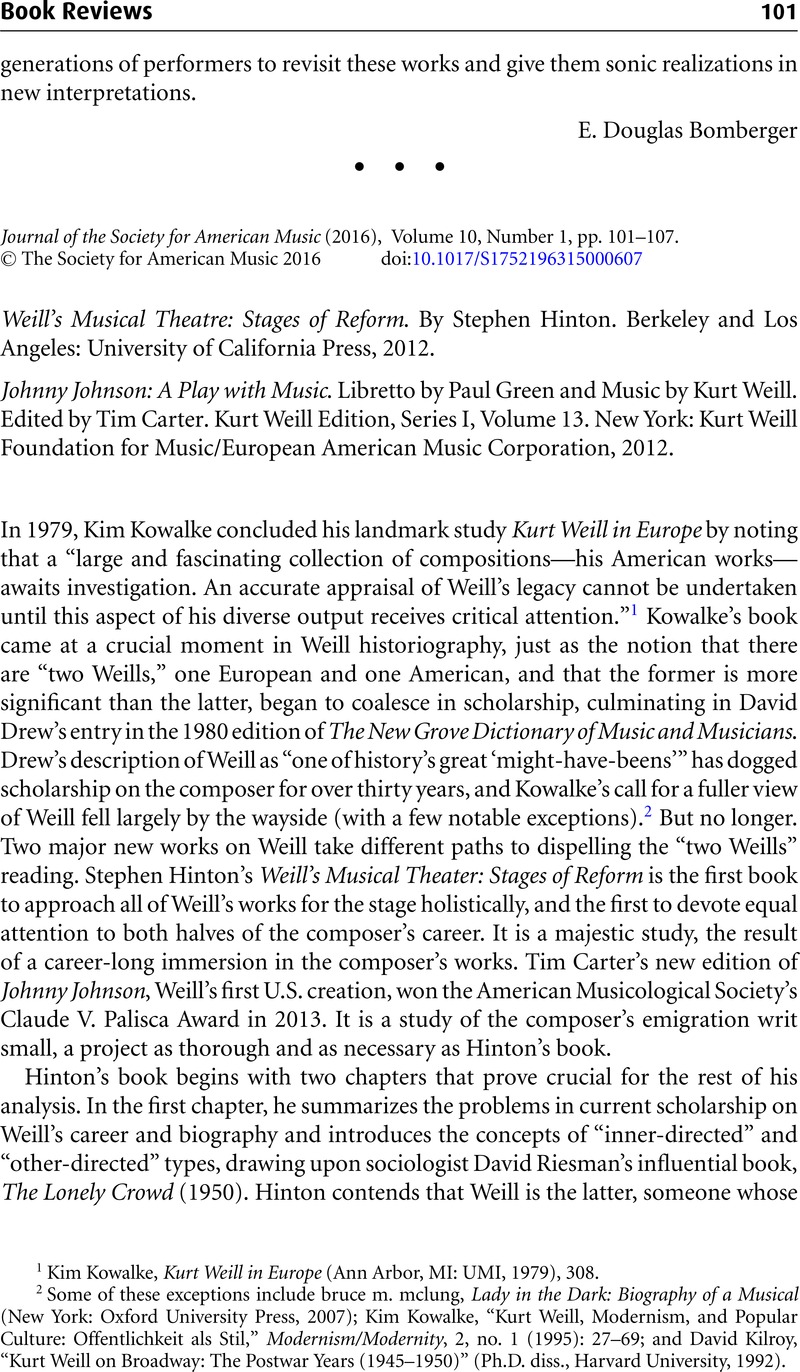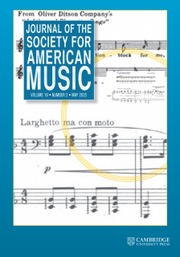No CrossRef data available.
Article contents
Weill's Musical Theatre: Stages of Reform. By Stephen Hinton. Berkeley and Los Angeles: University of California Press, 2012. - Johnny Johnson: A Play with Music. Libretto by Paul Green and Music by Kurt Weill. Edited by Tim Carter. Kurt Weill Edition, Series I, Volume 13. New York: Kurt Weill Foundation for Music/European American Music Corporation, 2012.
Published online by Cambridge University Press: 12 February 2016
Abstract

- Type
- Book Review
- Information
- Copyright
- Copyright © The Society for American Music 2016
References
1 Kowalke, Kim, Kurt Weill in Europe (Ann Arbor, MI: UMI, 1979), 308Google Scholar.
2 Some of these exceptions include mclung, bruce m., Lady in the Dark: Biography of a Musical (New York: Oxford University Press, 2007)CrossRefGoogle Scholar; Kowalke, Kim, “Kurt Weill, Modernism, and Popular Culture: Offentlichkeit als Stil,” Modernism/Modernity, 2, no. 1 (1995): 27–69CrossRefGoogle Scholar; and David Kilroy, “Kurt Weill on Broadway: The Postwar Years (1945–1950)” (Ph.D. diss., Harvard University, 1992).
3 For example, see Hirsch, Foster, Kurt Weill On Stage: From Berlin to Broadway (New York: Alfred A. Knopf, 2002), 74–75Google Scholar; and Jarman, Douglas, “Weill and Berg: Lulu as Epic Opera,” in A New Orpheus: Essays on Kurt Weill, ed. Kowalke, Kim (New Haven, CT: Yale University Press, 1986), 147–57Google Scholar. Jarman briefly acknowledges that Brecht's and Weill's views diverged but treats them interchangeably throughout the course of the essay. More recently, other scholars have also begun to untangle Brecht's and Weill's ideas, including Calico, Joy in Brecht at the Opera (Berkeley: University of California Press, 2008), 50CrossRefGoogle Scholar.
4 Juchem, Elmar, Kurt Weill und Maxwell Anderson: Neue Wege zu einem amerikanischen Musiktheater, 1938–1950 (Stuttgart: J. B. Metzler, 1999)Google Scholar.
5 The first was The Firebrand of Florence, libretto by Ira Gershwin and Edwin Justus Mayer and music by Kurt Weill, ed. Joel Galand, Kurt Weill Edition, series I, vol. 18 (New York: Kurt Weill Foundation for Music/European American Music, 2012).
6 Horowitz, Joseph, Artists in Exile: How Refugees from Twentieth Century War and Revolution Transformed the American Performing Arts (New York: HarperCollins, 2009), 142Google Scholar.




